Starting secondary school is a major moment in any child’s life. It’s a time filled with mixed emotions – excitement and anxiety. They’ll be going from being one of the biggest in a smaller primary school to one of the smallest in a bigger secondary school. And the structure of their days will be different. So it’s okay that they’ll be a bit nervous. You’ll probably be nervous too! But there are things you can do to help make the move easier for them.
In this short video, teacher Chris Smith has lots of great practical advice for going back to school, including how to manage that tricky transition from P7 to S1.
What if my child is nervous about starting secondary school?
Even the most confident P7 may be a wee bit worried about starting secondary school. There’s no point pretending that primary and secondary schools aren’t different. But there’s no need for them to be scared. There are plenty of practical things you can do to help smooth the transition and ease any worries they have.
What if my child seems really anxious?
Starting secondary school can be scary, so it's perfectly normal for your child to feel anxious about it. But if they are struggling with sleep due to worry, or seem completely overwhelmed or worn out by anxiety then something more serious may be going on. Our page on helping teens with anxiety looks at the difference between everyday worries and more serious anxiety, how you can support your child through this and where you can get help and support. We also have advice on helping teens cope with social anxiety.
If your teen is autistic, has ADHD or is in any way neurodivergent then they may show anxiety in different ways. You can find tips to help neurodivergent teens with anxiety here.
What do schools do to help new S1 pupils settle in?
Your child’s primary school and their new secondary school will have plans in place to help new children settle into S1, but these will differ from school to school. Their P7 teacher may show them pictures or videos tours of their new school, and given them other information to help them when they start. Some secondary schools may invite children to come in for a visit, while others may use videos and online chats. Get in touch with your child’s school to find out what the options are.
Once they start, your child will get lots of support from their pastoral support (guidance) teacher, their head of year, support for learning staff and other pupils. If your child has any questions, all of these people will be happy to help. If you have concerns, you should contact your child’s pastoral support (guidance) teacher.
When term begins in August, there will be a couple of weeks where children are introduced to new lessons and activities.
Tips for starting secondary school
Tip #1: Talk to them
Ask them how they feel about starting school. Let them know that you’re there to speak to them about anything that might be worrying them. Concerns about making new friends and bullying are all normal, and it’s important they know you’re there to chat anytime they want to. Our page on talking and listening to your teen has more advice.
Tip #2: Go through the first day
The more they feel they know about their new school, the easier it'll be on the first day. So you could try looking at pictures of it and talking to them about what their first day will be like. Even being clear on what they’re going to wear and what route they’ll take in the morning will help settle their nerves a little – you could even do a practice run.
Tip #3: Be positive
You may have your own worries about them starting secondary school. But it’s important that you try to stay positive. Ask them what they’re looking forward to, for example, the subjects they think they’ll like.
Secondary school offers a lot of new opportunities, which can be really exciting. For example, there will be lots of extra-curricular activities, before and after school and at lunch time. Encourage your child have a think about what they're interested in. Getting involved will help them build skills and meet new people.
Tip #4: Stick to your routine
Over the summer holidays it’s easy to slip into the habit of late nights and later starts in the morning! Getting into a good morning routine in the week leading up to starting school will help make the first few days easier.
Tip #5: Be prepared
Help your child get everything they need to start. Their school will let you know what equipment is needed, like pens or calculators. Let them pick any new stationery or a new rucksack. This will help them feel a bit more confident on their first day. If you’re worried about money at the moment take a look at our tips for saving on school costs to find out about any support you might be eligible for.
Tip #6: Don't overcrowd them
Children need to become much more independent when they go to secondary school. So it’s a good idea to show them you trust them rather than hovering over them doing everything for them.
For example, instead of packing their school bag for them you could just check in with them: ‘Do you have everything you need for tomorrow?’ And instead of dropping them at the school gates you could let them walk at least some of the way on their own.
Tip #7: Help them find practical solutions to worries
If your child comes to you with specific worries about school, you can help them find practical solutions so they feel more confident. For example, if they’re worried about being late, you could suggest a trial run during the holidays. If they’re worried about getting lost in school, you could suggest they take a photo of their timetable and keep it on their phone (if they’re allowed phones in school) so they always know where they’re meant to be and when.
BBC Bitesize has lots more tips like this for secondary school pupils from children who’ve been there.
Tip #8: Practise talking to new classmates
One of the most exciting but also the most scary things about starting secondary school is the chance to make new friends. To make this a little bit less daunting, you could help them practise talking to new people.
Asking a question is always a good way of starting a conversation, as the other person has to reply! This could be as simple as: ‘Hello, my name’s Jane, what’s yours?’ Or they could try a compliment: ‘I like your bag/pencil case – where did you get it?’
You could also suggest they look for people who have the same interests as them, such as supporting the same football team or liking the same bands, and then ask them about that.
Remind them that everyone will be in the same boat, and anyone your child starts a conversation with will probably be relieved that they made the first move.
Our pages on helping your child make friends and helping your teen make friends have more advice.
You could also suggest they have a look at this guide to making friends from YoungScot.
Tip #9: Be involved
Be interested in their new timetable, who they already know at school, or their teachers' names. This is a new change for both of you, and the more engaged you are, the more supported your child will feel. For the first couple of weeks (or longer), ask them the night before about the timetable for the following day, ask what subjects they have and what they will need for the day.
Schools are always keen to make you feel part of the school community, so look out for family learning sessions in school bulletins.
Tip #10: Encourage them to join clubs they’re interested in
If your child joins in with a club or activity, like a drama club, sports club, choir, gaming club or art club, they’re more likely to meet other kids that share their interests. And having something in common will make it easier to make friends.
Tip #11: Help them find something to remind them of home
If your child gets anxious at school, having a small object in their pocket that reminds them of home or their family may help them feel more connected to you. This could be anything – a pebble from the garden, a shell they found on the beach on holiday, a conker from the local park or a fidget toy. Just make sure it’s something you can easily replace if they lose it!
Tip #12: Stick to familiar things out of school
Your child may feel as if everything is changing, but keeping to familiar routines in the evenings and weekends can help reassure them. For example, you could encourage them to carry on attending any clubs they went to before they started S1 and keep up any family traditions like film night or going to the park.
Tip #13: Keep checking in
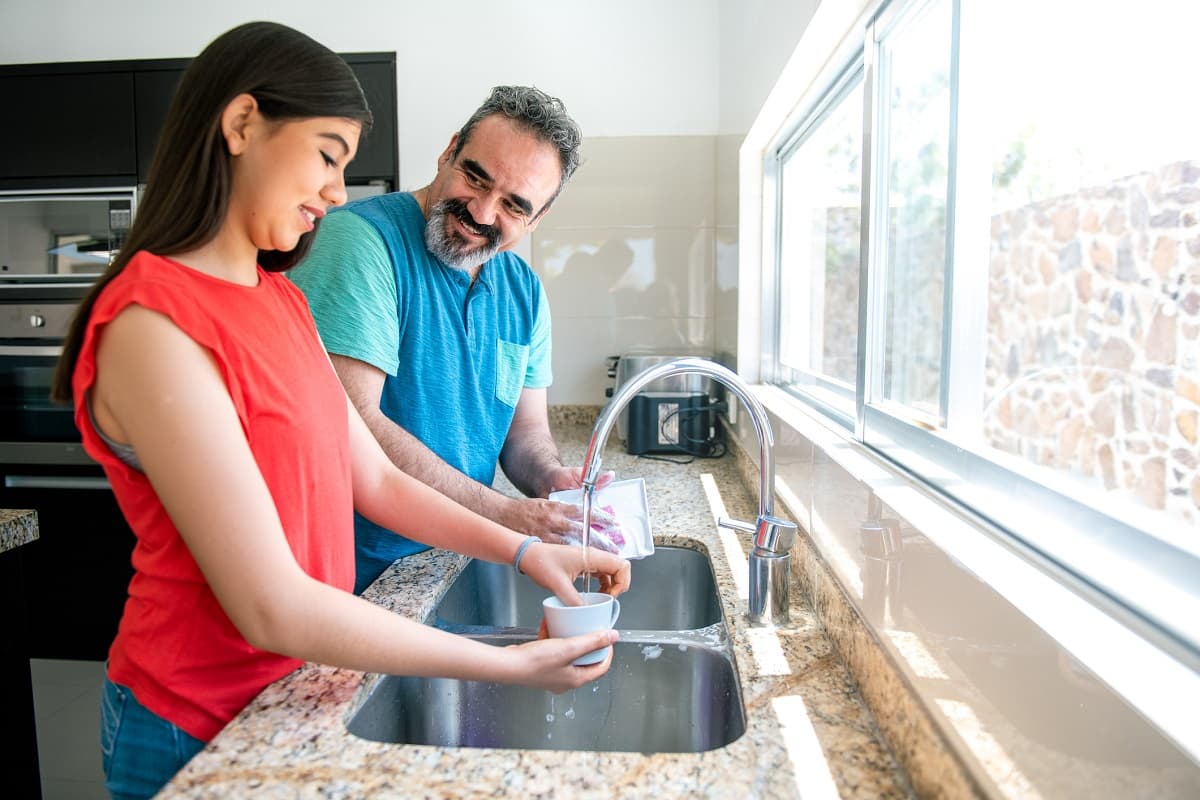
It may help to set aside some time every week when you do something together, like go for a walk or prepare a meal together. This will give you the chance to talk to each other without making a big deal of it. This page has more advice on talking to young people and listening to what they have to say.
What if I have twins, triplets or more?
If you have twins, triplets or more ('multiples'), you can find lots of tips and advice on the Twins Trust website to help your children make the move from primary to secondary school.
Starting secondary school if your child has additional support needs
If your child has additional support needs, making the move from primary to secondary school may seem even more daunting. But it isn’t something you need to manage by yourself. Your child’s primary school should start planning for this change at least a year before they’re due to start secondary school.
With your permission, they’ll begin by putting together information about your child’s needs and what’s working well for them in primary school. They’ll then share this information with your child’s new secondary school. The secondary school will then work with you and your child to find the support that best suits their needs.
Online safety
As your child starts secondary school they may start to go online more frequently. Our section on online safety has lots of advice for helping them use their devices more safely. To get started today, have a look at the ABC online safety checklist from Internet Matters, which has three simple actions you can do right now.
Supporting your child
If you’re worried about how your child is coping, or you’re worried they’ve become a bit withdrawn, we have some advice on our page about supporting your teenager’s mental wellbeing. If you’re still concerned you can contact their school and speak to their guidance teacher about any worries you have.
 Activities & Play
Activities & Play Behaviour
Behaviour Childcare
Childcare Development & Growing Up
Development & Growing Up Family, Friends & Relationships
Family, Friends & Relationships Feeding Your Baby
Feeding Your Baby Food & Eating
Food & Eating Health & Safety
Health & Safety Mental Health & Wellbeing
Mental Health & Wellbeing Money & Work
Money & Work Online Behaviour & Safety
Online Behaviour & Safety Pregnancy & First Days
Pregnancy & First Days School & Education
School & Education Sleep
Sleep

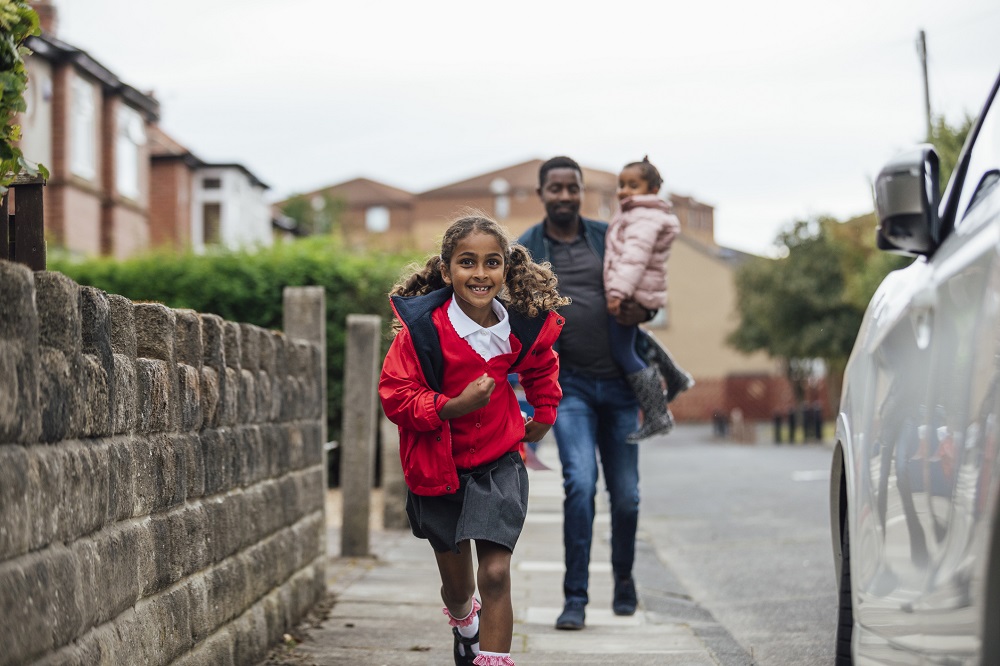
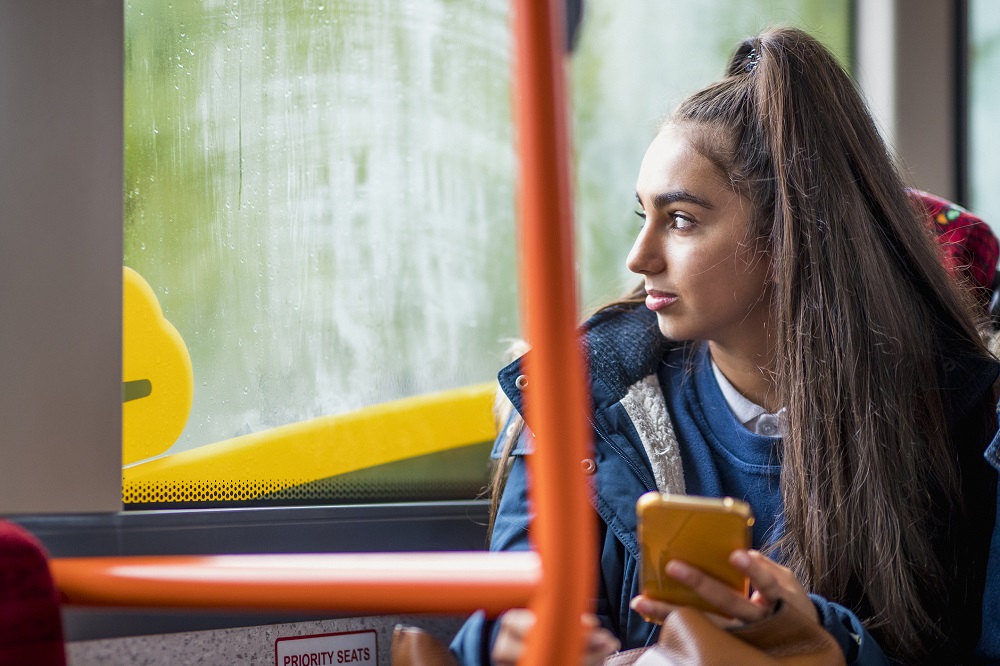
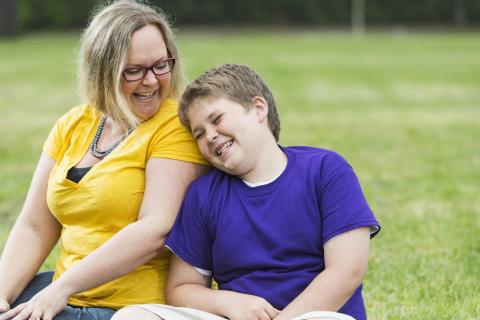

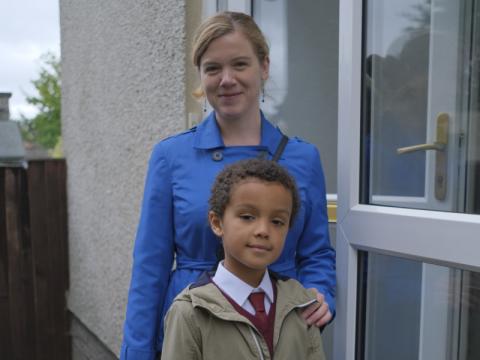

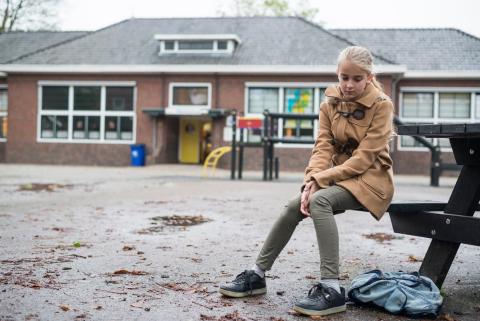
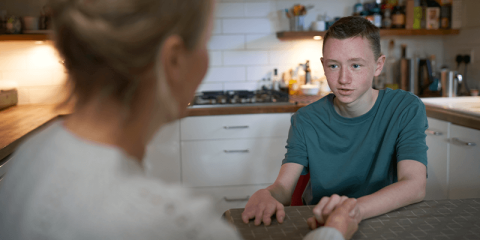


 Online Behaviour & Safety
Online Behaviour & Safety
 Childcare
Childcare